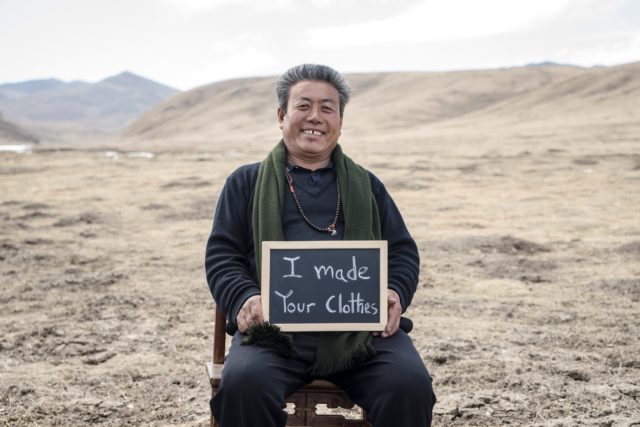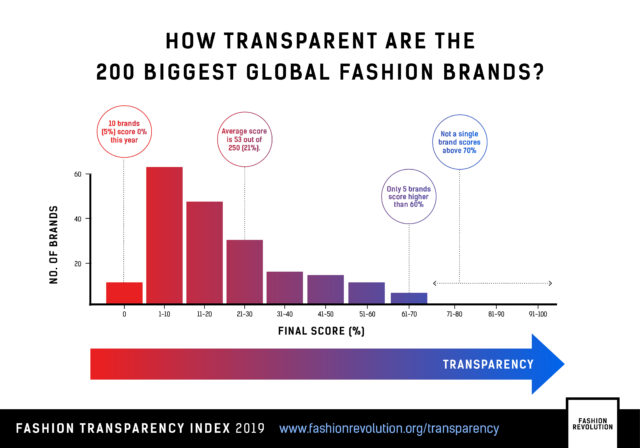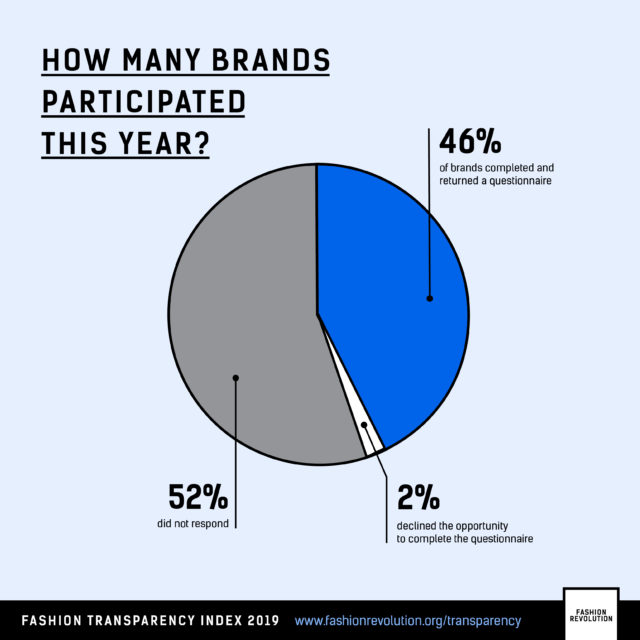
Adidas and Reebok have topped a ranking of global brands’ social and environmental transparency and practices for the third year in a row.
It was the first year a retailer scored more than 60% on Fashion Revolution’s fashion transparency index, which assesses 200 major global brands on their disclosure of human rights policies, commitments and outcomes.
The two sportswear brands scored 64% out of a possible 250 points alongside outdoor clothing company Patagonia.

The index marks the start of Fashion Revolution Week, falling on the sixth anniversary of the Rana Plaza factory collapse in which more than 1,000 workers died in Bangladesh.
It rates brands’ public disclosure across five key areas: policy and commitments, governance, supply chain traceability, supplier assessment and remediation.
Esprit and H&M were also in the 61%-70% range, with C&A, ASOS, Puma, Nike, Converse, Jordan, The North Face, Timberland, Wrangler, Vans and Marks & Spencer at the top end of the 51-60% range.

This year the index also looked at “spotlight issues” of gender equality, decent work, climate action, responsible consumption and production and climate action.
The campaign, which has advised climate change protesters Extinction Rebellion, found that although 55% of the brands were publishing their annual carbon footprint on their own websites, only 19.5% disclose carbon emissions in the supply chain – where over 50% of the industry’s emissions occur.
Their report also found that brands were disclosing “very little” about their efforts to empower women and girls to achieve gender equality.

Amongst the 98 brands reviewed in 2017, 2018 and again in 2019, there was an 8.9% rise in their average score since they were first introduced.
Despite the progress, no brands scored over 70%, with policy director and report author Sarah Ditty cautioning that there was still work to be done.
Ms Ditty said: “The average score amongst the biggest fashion brands and retailers is just 21%, showing that there are still far too many big brands lagging behind.
“Major brands are disclosing very little information and data about their purchasing practices, which means that we still don’t have visibility into what brands are doing to be responsible business partners to their suppliers.”


Comments: Our rules
We want our comments to be a lively and valuable part of our community - a place where readers can debate and engage with the most important local issues. The ability to comment on our stories is a privilege, not a right, however, and that privilege may be withdrawn if it is abused or misused.
Please report any comments that break our rules.
Read the rules here